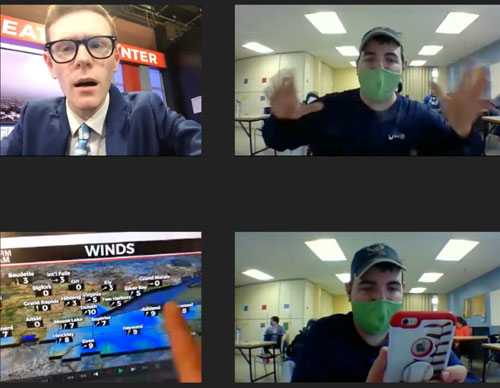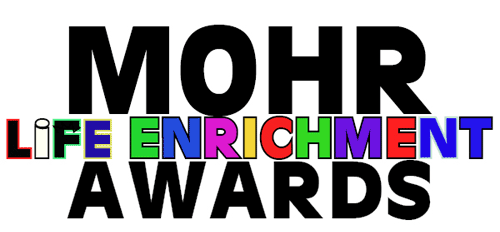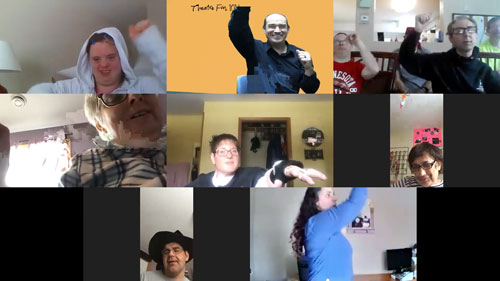2021 MOHR Life Enrichment Award winners
Remote services were a prevalent theme for the 2021 MOHR Life Enrichment Awards, as members adapted to reach individuals with disabilities during the pandemic. Please enjoy these short summaries for the 2021 winners. Each is working on a presentation to share the MOHR honor with their community.
"Creative, innovative services help people with disabilities live their best lives," said MOHR President Julie Johnson.
MOHR members are taking services to Minnesotans in new ways, enriching their lives with commitment, enthusiasm and innovation.
The 2021 winners
Achieve Services, Twin Cities |
MRCI, Mankato, New Ulm, Twin Cities
|
MSS, Twin Cities
|
Opportunity Partners, Twin Cities
|
Pinewood Cloquet, Inc, Cloquet
|
WACOSA, St. Cloud
|
Achieve Services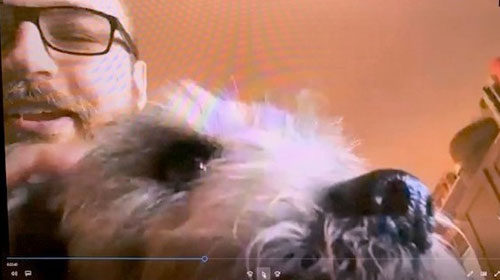
Blaine
"The Morning Show"
An interactive virtual service to connect people, increase awareness and motivate
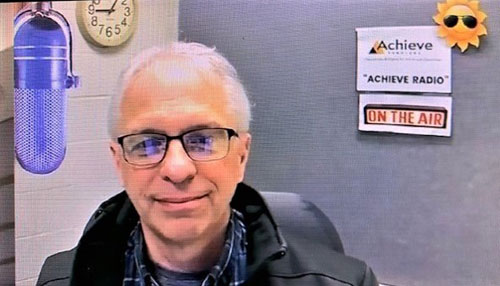 The brainchild of behavior specialist Ralph Vossberg with Achieve Services, a new virtual services program filled connection gaps created by the pandemic. “The Morning Show” is patterned after radio and television programs, and offers a light and entertaining look at news, sports and weather.
The brainchild of behavior specialist Ralph Vossberg with Achieve Services, a new virtual services program filled connection gaps created by the pandemic. “The Morning Show” is patterned after radio and television programs, and offers a light and entertaining look at news, sports and weather. The show serves as a daily check-in and day starter of sorts for people with disabilities. Many are on Zoom classes, which has required an entirely new set of skills. It’s designed to be interactive, engaging with participants who discuss their activities and interests. A changing daily slide show is employed with “National Day” items, a music video and “pet cams” in people’s homes.
“We also hope their interests are expanded,” said Achieve Services Development Director Jennifer Dieter. “They are developing or enhancing social skills around waiting to talk, listening to others and accepting different opinions.”
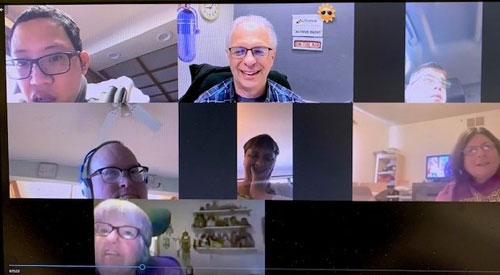
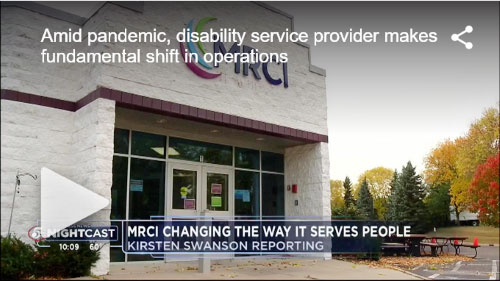
MRCI
Mankato, New Ulm, Twin Cities
The New MRCI
Community-based Day Service
The concept moves beyond the idea of “outings,” to the community as a place to explore, learn and connect with others. Inclusion involves belonging and fellowship, while learning the skills needed to be more independent while pursuing one’s interests, MRCI explains.
There are personal goals to strive for. Individuals can meet new people, grow their relationships and natural supports. It’s a big change, with the closure of MRCI facilities in Chaska, Shakopee, Rosemount and Fairmont, and the consolidation of two buildings into one in New Ulm and in Mankato.
Originally part of a five-year plan, COVID-19 accelerated the timeline for the redesigned service. The slowdown made the changeover easier. Once in full operation, MRCI hopes to have 150 to 200 minivans on the road each day to provide the service.
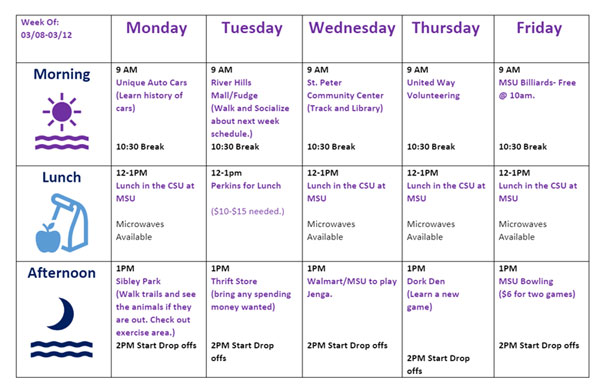
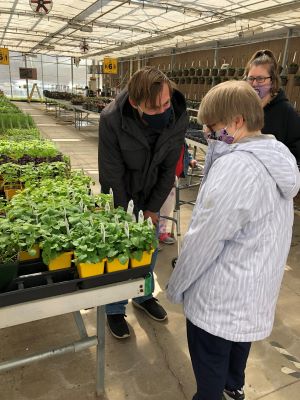
MSS
St. Paul
Remote Services
Virtual classes and engagement to build relationships
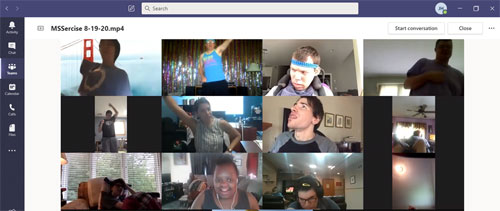
Isolated at home due to COVID fears and rules, MSS participants with disabilities and staff soon assembled for Zoom classes to meet individual needs. It was a quick learning curve to transfer hands-on learning to virtual engagement.
Hitting full stride, the nonprofit grew the work to offer more than 50 different class choices to participants each week. Users help drive the content, as well.
New friendships have sprouted and grown, as people learn about the musical interests of others, pets’ names, favorite foods, sports, artists and more. People who are nonverbal get assistance from staff to engage, and use the “chat” function.
Family members are connecting as never before and a few volunteers are teaching classes, too. The program has depth, as well, with outside partners interacting with individuals. Upstream Arts, Kairos Alive, MacPhail Center for Music and Roots Music assist with classes.
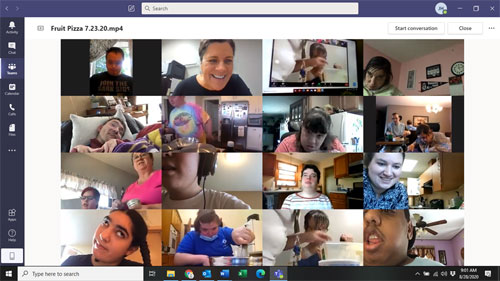
Opportunity Partners
Minnetonka
Virtual Services
Mental and social stimulation for growth and independence
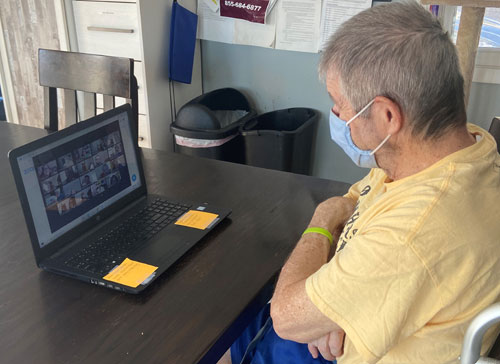 The pandemic opened a new door for Opportunity Partners (OP) to provide services to people with disabilities where they live. Virtual services bypassed the need to navigate many sensory experiences such as the transition from home to the day program, OP explains.
The pandemic opened a new door for Opportunity Partners (OP) to provide services to people with disabilities where they live. Virtual services bypassed the need to navigate many sensory experiences such as the transition from home to the day program, OP explains.
There was no playbook for the new service in the summer of 2020, but staff members were enthused and leadership supportive. It began with group sessions and 1:1 classes, but individuals served missed their friends, so social hours were scheduled.
Engagement was enhanced, new interests explored and people met new friends. They shared about hobbies, pets and other facets of their lives. Topics are kept “light and fresh.”
The use of technology has brought added growth and independence for many. Virtual services offer another avenue to reach others, even after the pandemic.
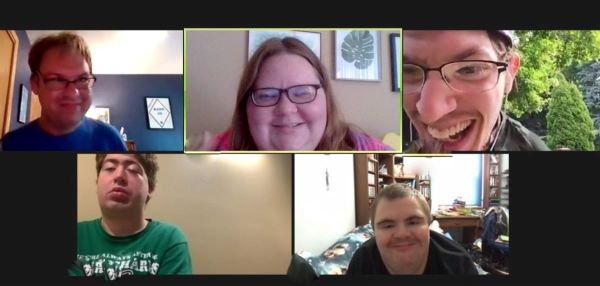
Pinewood Cloquet, Inc.
Cloquet
Library reading program
Dolly Parton Imagination Library – United Way of Carlton County
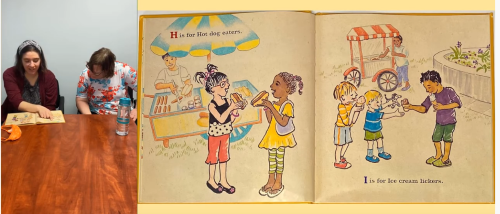
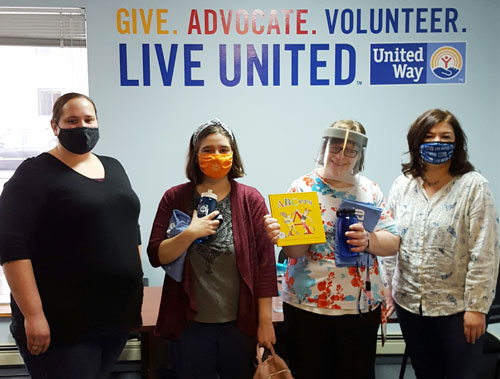
The pandemic put the brakes on community engagement and work for people served by Pinewood Cloquet in northern Minnesota. A local chapter of a national reading program was one answer.
The Dolly Parton Imagination Library was intriguing, as it incorporated story time for children from infancy to five years old, but it presented many “what if” scenarios, 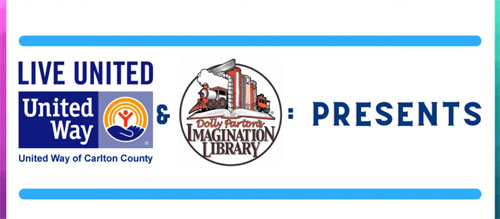 according to Pinewood. Individuals read to children remotely, on camera.
according to Pinewood. Individuals read to children remotely, on camera.
What if the people with disabilities served could not read, or became camera shy? How would they be chosen to take part? Will people’s feelings be hurt? One person served by Pinewood had to play a part, but needed help reading. Staff helped out, and she overcame her challenge.
Curiosities grew, and more people took interest. People went from being nervous to excited as they showed their skills and reached young people with enjoyable content. All the while, they built their confidence.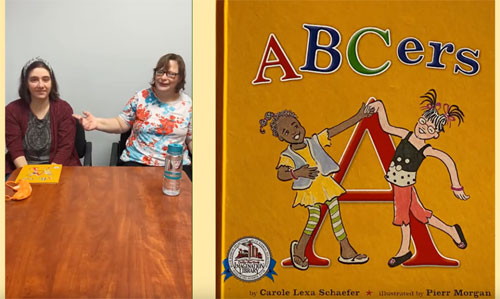
WACOSA
Waite Park
Connect Academy
Remote engagement and learning through creative expression and technology
Advanced video and studio equipment enhances WACOSA’s effort at virtual services with help from 12-year veteran DSP Mike Nichols. Connect Academy began before COVID-19 as individuals with disabilities got past their apprehension and saw beyond their own perceived barriers, according to WACOSA.
Technology was adapted for safe virtual alternative services. The nonprofit converted a conference room into a video studio with a Chroma-key green wall, professional cameras, lights and live video production software. Zoom was chosen as the online conduit.
Content for Connect Academy classes is adapted and tailored to individual choices. WACOSA has engaged a weather reporter from a Duluth television station, experts in the disability field and others to provide engaging material. The group is confident that the classes will benefit people in ways that will reverberate well into their future lives.
